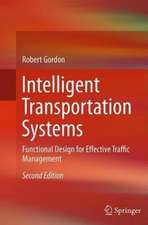Green Energy: Sustainable Electricity Supply with Low Environmental Impact
Autor Eric Jeffsen Limba Engleză Hardback – 18 noi 2009
Electricity generation is a concentrated industry with a few sources of emissions, which can be controlled or legislated against. This book explains that a green sustainable electricity system is one whose construction, installation, and operation minimally affect the environment and produce power reliability at an affordable price. It addresses the question of how to build such an electricity supply system to meet the demands of a growing population without accelerating global warming or damaging the environment.
The green argument for conservation and renewable energies is a contradiction in terms. Although they produce no emissions, because renewable systems are composed of a large number of small units, a considerable amount of energy is required to produce, erect, and maintain them. This book is a response to that conundrum, answering key questions, such as:
- How can renewables be exploited to contribute the greatest energy input?
- Should coal be used for clean fuel and chemical production rather than for power generation?
- How quickly can we start to build the Green Energy system?
The author has more than forty years of experience as an international journalist reporting on power-generating technologies and on energy policies around the world. Detailing the developmental history, and current state, of the global nuclear industry, he discusses the dire, immediate need for large quantities of clean, emission-free electric power, for both domestic and industrial uses. This book details how current technologies—particularly nuclear, combined cycle, and hydro—can be applied to satisfy safely the growing energy demands in the future.
| Toate formatele și edițiile | Preț | Express |
|---|---|---|
| Paperback (1) | 581.20 lei 6-8 săpt. | |
| CRC Press – 22 mai 2017 | 581.20 lei 6-8 săpt. | |
| Hardback (1) | 1383.83 lei 6-8 săpt. | |
| CRC Press – 18 noi 2009 | 1383.83 lei 6-8 săpt. |
Preț: 1383.83 lei
Preț vechi: 1687.59 lei
-18% Nou
Puncte Express: 2076
Preț estimativ în valută:
264.79€ • 277.21$ • 219.10£
264.79€ • 277.21$ • 219.10£
Carte tipărită la comandă
Livrare economică 05-19 aprilie
Preluare comenzi: 021 569.72.76
Specificații
ISBN-13: 9781439818923
ISBN-10: 1439818924
Pagini: 236
Ilustrații: 46 b/w images and 15 tables
Dimensiuni: 156 x 234 x 20 mm
Greutate: 0.52 kg
Ediția:1
Editura: CRC Press
Colecția CRC Press
ISBN-10: 1439818924
Pagini: 236
Ilustrații: 46 b/w images and 15 tables
Dimensiuni: 156 x 234 x 20 mm
Greutate: 0.52 kg
Ediția:1
Editura: CRC Press
Colecția CRC Press
Public țintă
Power generation and fuel supply and production companies, consulting engineers, technical high schools and university libraries, government energy and environmental ministries, and members of the public who have worked in the electricity supply industry.Cuprins
Global Warming. Carbon Capture and Storage. The End of Coal? A Nuclear Energy Revival. Combined Cycle. The New Technologies. The Renewable Uncertainties. The Truth About America. What is in the Future?
Notă biografică
Eric Jeffs is a retired journalist with more than 40 years of experience writing about power generating technology and energy policies.
Recenzii
"This book details how current technologies-particularly nuclear, combined cycle, and hydro-can be applied to satisfy safely the growing energy demands in the future."
––International Journal of Microstructure and Material Properties, 2013
––International Journal of Microstructure and Material Properties, 2013
Descriere
Because renewable systems are composed of a large number of small units, a considerable amount of energy is required to produce, erect, and maintain them. Hence, the green argument for conservation through renewable systems is somewhat of a contradiction. Written by an international journalist with 40 years of experience reporting on power-generating technologies and global energy policies, this book addresses the question of how to build an electricity supply system that meets the demands of a growing population without accelerating global warming or damaging the environment. The text defines a green energy system as one whose construction, installation, and operation minimally impact the environment.



